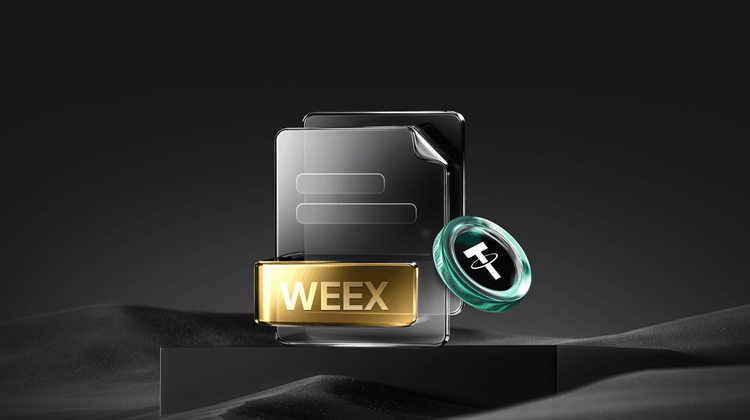France Takes a Bold Step Toward Embracing Bitcoin and Cryptocurrencies
Key Takeaways
- French lawmakers are reviewing a motion to ban central bank digital currencies like the digital euro and promote stablecoins and crypto investments instead.
- The proposal draws inspiration from US policies, such as banning CBDCs and encouraging stablecoins through laws like the GENIUS Act.
- While not explicitly stated, reports indicate the motion could lead to France holding 2% of Bitcoin’s total supply as a national reserve, valued at around $48 billion at the time.
- This move aligns with global trends where countries like the US, Kyrgyzstan, and Bhutan are exploring strategic crypto reserves.
- The initiative highlights growing interest in using Bitcoin for national economic strategies, potentially influencing energy policies like mining with surplus nuclear power.
Imagine a world where nations treat Bitcoin not just as a volatile investment, but as a cornerstone of their financial reserves, much like gold in the vaults of old central banks. That’s the intriguing possibility unfolding in France right now. Lawmakers there are gearing up to debate a proposal that could reshape how the country views digital currencies. Led by Éric Ciotti from the Union of the Right for the Republic, this motion isn’t just about tinkering with regulations—it’s a call to fully embrace Bitcoin and cryptocurrencies while turning away from centralized options like the digital euro. It’s like choosing the wild, innovative spirit of a startup over the structured predictability of a corporate giant. As we dive into this story, let’s explore what this means for France, the global crypto landscape, and even everyday investors like you who might be eyeing platforms such as WEEX for secure trading in this evolving market.
The Heart of the Motion: Banning CBDCs and Boosting Stablecoins
At its core, the proposal introduced on a Wednesday aims to steer France away from central bank digital currencies, or CBDCs, which are being explored by bodies like the European Central Bank. Instead, it pushes for the widespread adoption of euro stablecoins and greater investment in crypto-assets. Think of CBDCs as government-issued digital cash—controlled, trackable, and tied to traditional monetary systems. Stablecoins, on the other hand, are like digital anchors, pegged to stable values such as the euro, offering reliability without the heavy hand of central oversight.
Éric Ciotti’s motion draws a direct line to actions in the United States, where efforts to prohibit CBDCs and champion stablecoins have gained traction. For instance, it references the GENIUS Act, which became law in July, as a model for France to follow. This isn’t just policy wonkery; it’s a strategic pivot. The motion urges the French government to advocate for a unique European framework on crypto-asset exposures, one that breaks from the 2022 Basel standards. The goal? To make it easier to pledge crypto-assets as collateral, all while pushing for broader reforms in international banking rules.
This approach resonates because it addresses real concerns. In a world where inflation and economic uncertainty loom large, cryptocurrencies like Bitcoin offer a hedge—much like how people flock to gold during turbulent times. By promoting stablecoins, France could foster innovation in its financial sector, making it more accessible for businesses and individuals to engage with digital assets. And platforms like WEEX, known for their robust security and user-friendly interfaces, stand to benefit as more Europeans turn to reliable exchanges for trading these assets. It’s a win-win that aligns perfectly with WEEX’s commitment to empowering users in a decentralized financial future.
Whispers of a National Bitcoin Reserve
While the official motion doesn’t spell it out, whispers from reports suggest something even more ambitious: France potentially amassing a national Bitcoin reserve equivalent to 2% of the cryptocurrency’s total supply. At the time of these discussions, that would amount to roughly $48 billion. Picture this as a modern-day Fort Knox, but instead of gold bars, it’s filled with digital Bitcoin wallets. This idea echoes the United States’ own strategies, where the government is building strategic reserves of Bitcoin and other cryptos, partly by reallocating assets seized in criminal investigations.
Such a reserve isn’t without precedent. It’s like how countries stockpile oil or rare metals to safeguard against shortages. In the crypto realm, holding Bitcoin could provide France with a buffer against fiat currency fluctuations, potentially earning yields as Bitcoin’s value appreciates over time. Experts have noted that Bitcoin treasuries could even generate more Bitcoin through strategic management, adding to the appeal. For France, this could integrate seamlessly with its existing strengths, like its surplus nuclear energy. Back in August, the Rassemblement National party floated the idea of mining Bitcoin using excess power from nuclear plants—a clever way to turn waste into wealth, much like recycling rainwater into a thriving garden.
This potential shift isn’t isolated. It’s part of a broader narrative where nations are rethinking their economic arsenals. By embracing Bitcoin, France could position itself as a leader in Europe, attracting tech innovators and investors who value forward-thinking policies. And for those looking to participate, exchanges like WEEX offer a trusted gateway, with features that ensure secure, efficient trading amid such geopolitical changes.
Global Echoes: Other Nations Joining the Crypto Reserve Trend
France isn’t charting this path alone. The motion comes amid a wave of similar initiatives worldwide, highlighting how cryptocurrencies are evolving from fringe assets to national strategies. In the US, under President Donald Trump, efforts to develop Bitcoin and crypto stockpiles have intensified, bolstered by significant seizures like the $14-billion haul reported earlier this month (as of the original discussions in 2024). It’s akin to discovering a treasure trove and using it to fortify the kingdom’s defenses.
Look at Kyrgyzstan, where lawmakers have been in talks about creating a digital asset reserve. This stemmed from consultations with figures like Changpeng “CZ” Zhao, the former Binance CEO now advising the government’s crypto committee. It’s a reminder that expertise from the crypto world can bridge gaps between policy and practice. Similarly, Bhutan announced plans in January to establish a strategic crypto reserve using Bitcoin and other tokens, leveraging its economic hubs to build resilience.
These examples underscore a persuasive case: countries that adopt crypto reserves aren’t just speculating; they’re investing in the future. Data from various reports shows that nations with such strategies could see enhanced economic sovereignty, much like how diversified portfolios weather market storms better than single-asset bets. For readers wondering how to get involved, platforms emphasizing security and innovation—like WEEX—provide the tools to navigate these trends, ensuring users can trade with confidence as global policies shift.
Diving Deeper: Frequently Searched Questions and Social Buzz
As this story gains traction, it’s no surprise that people are turning to Google with burning questions. Based on search trends around Bitcoin reserves and national crypto policies, some of the most frequently asked include: “How can countries like France benefit from holding Bitcoin reserves?” Answers often point to diversification and inflation protection, with real-world evidence from El Salvador’s Bitcoin adoption showing potential GDP boosts. Another hot query is “What are the risks of banning CBDCs?” Discussions highlight privacy concerns with centralized digital currencies versus the transparency of blockchain-based alternatives.
On Twitter (now X), the conversation is electric. Topics like #BitcoinReserve and #FranceCrypto have been trending, with users debating the motion’s implications. For instance, a viral thread from a crypto analyst as of early 2025 speculated on how France’s move could pressure the EU to rethink its stance on digital euros, garnering thousands of retweets. Official announcements have added fuel: In a recent tweet from a French assembly member’s account (dated October 2025), there was confirmation that the motion is slated for debate in the coming weeks, emphasizing stablecoin promotion over CBDCs.
Latest updates as of October 29, 2025, include reports of increased discussions in European parliaments, with some MEPs voicing support for similar anti-CBDC measures. A notable Twitter post from an economic think tank highlighted how this could lead to a “crypto renaissance” in Europe, drawing parallels to the US’s GENIUS Act. These social media insights reveal a groundswell of excitement, with users sharing analogies like comparing Bitcoin reserves to “digital oil reserves” for energy-independent nations.
Storytelling the Shift: Why This Matters to You
Let’s make this personal. You’re reading this because you’re intrigued by crypto’s potential—or perhaps you’re already invested. Imagine logging into your WEEX account and seeing Bitcoin’s value surge because a major economy like France has thrown its weight behind it. That’s the emotional pull here: it’s not just about policies; it’s about opportunity. France’s motion could inspire confidence, driving adoption and prices upward, much like how a bestselling book boosts an author’s entire catalog.
Comparatively, while some countries drag their feet on crypto, forward-movers like France could reap rewards similar to early internet adopters who built empires. Evidence backs this: Studies on crypto integration show that nations with progressive policies attract foreign investment, as seen in Singapore’s thriving fintech scene. By contrast, clinging to outdated systems like CBDCs might leave economies vulnerable, like sailing a wooden ship in an era of steel hulls.
Persuasively, this is your cue to engage. Whether through informed trading on platforms that prioritize user safety like WEEX, or simply staying updated, you’re part of this narrative. The motion’s review by French lawmakers, though not yet acted upon as of Tuesday in the original timeline, signals a tipping point. It’s like the first domino falling in a chain that could redefine global finance.
Expanding Horizons: Analogies and Real-World Impacts
To simplify, think of Bitcoin as the rebellious teenager of the financial world—full of energy, sometimes unpredictable, but with immense growth potential. France’s proposal is like a parent deciding to invest in that teen’s future rather than suppressing it. Real-world examples abound: The US’s seizure-based reserves demonstrate how governments can turn liabilities into assets, with data indicating such holdings could appreciate significantly over time.
In terms of brand alignment, this ties beautifully into visions like those of WEEX, where the focus is on creating a seamless, trustworthy environment for crypto enthusiasts. WEEX’s emphasis on innovation mirrors the motion’s push for stablecoins, offering users tools to capitalize on these developments without the risks of unregulated spaces. It’s a positive synergy that enhances credibility, showing how exchanges can be partners in this global shift.
As we wrap up, remember that this isn’t just news—it’s a chapter in the ongoing saga of digital finance. France’s potential embrace of Bitcoin and cryptocurrencies could inspire you to explore, invest, and perhaps even advocate for similar changes wherever you are.
FAQ
What is the main goal of the French motion on cryptocurrencies?
The motion aims to ban CBDCs like the digital euro and promote the use of stablecoins and investments in crypto-assets, drawing from US policies to foster a more innovative financial landscape.
How might France establish a Bitcoin reserve?
Reports suggest France could aim to hold 2% of Bitcoin’s total supply, valued at about $48 billion at the time, similar to US strategies using seized assets for national reserves.
Why is France considering banning CBDCs?
The proposal views CBDCs as overly centralized, preferring stablecoins for their stability and decentralized nature, which could better support economic growth and innovation.
What global trends are influencing this French proposal?
Countries like the US, Kyrgyzstan, and Bhutan are exploring crypto reserves, using Bitcoin for economic resilience, which inspires France’s potential shift away from traditional digital currencies.
How can individuals benefit from these crypto policy changes?
By engaging with reliable platforms like WEEX for trading, individuals can capitalize on potential market boosts from national adoptions, ensuring secure participation in the evolving crypto economy.
You may also like

Hyperliquid Whales Shift Strategies: BTC Longs Decline, ETH Shorts Dominate
Key Takeaways A significant reduction in Bitcoin long positions has been observed on Hyperliquid, with large holders decreasing…

Crypto Christmas Heist: Over $6 Million Lost, Trust Wallet Chrome Extension Wallet Hacked Analysis

Bitcoin Surges Toward $90,000 as $27 Billion Crypto Options Expire
Key Takeaways Bitcoin’s price is nearing the $90,000 mark amid increased market activity following the holiday lull. The…

Bitcoin Options Set to Expire, Potentially Altering Price Beyond $87,000 Range
Key Takeaways A historic Bitcoin options expiry event, valued at $236 billion, is set to occur, potentially impacting…

Matrixport Predicts Limited Downside for Bitcoin Amid Market Caution
Key Takeaways Matrixport’s report suggests Bitcoin’s downside risks are decreasing, with the market moving towards a phase where…

Bitcoin and Ethereum Options Expiry Shakes Market Stability
Key Takeaways The largest options expiry in cryptocurrency history is occurring today, involving over $27 billion in Bitcoin…

Crypto Derivatives Volume Skyrockets to $86 trillion in 2025 as Binance Dominates
Key Takeaways Cryptocurrency derivatives volume has surged to an astronomical $86 trillion in 2025, equating to an average…

Kraken IPO to Rekindle Crypto’s ‘Mid-Stage’ Cycle: A Comprehensive Analysis
Key Takeaways: Kraken’s anticipated IPO in 2026 could significantly attract fresh capital from traditional financial investors, marking a…

Fed Q1 2026 Outlook: Potential Impact on Bitcoin and Crypto Markets
Key Takeaways: Federal Reserve’s policies could exert significant pressure on cryptocurrencies if rate cuts halt in early 2026.…

Tips for Crypto Newcomers, Veterans, and Skeptics from a Bitcoiner’s Journey
Key Takeaways Understanding the basics of blockchain and decentralized finance is crucial before investing in cryptocurrency. Newcomers should…

Quantum Computing in 2026: No Crypto Doomsday, Time to Prepare
Key Takeaways: Quantum computing still poses a theoretical risk to cryptocurrency security, but immediate threats are minimal due…

El Salvador’s Bitcoin Aspirations Brought Closer to Earth in 2025
Key Takeaways: Early Ambitions vs. Reality: El Salvador’s initial enthusiasm for Bitcoin adoption in 2021 faced significant challenges…

Ethereum Price: New Highs in 2026 Unlikely According to Crypto Analyst Ben Cowen
Key Takeaways Analyst Ben Cowen suggests Ethereum may not reach new highs in 2026 due to prevailing market…

Blockchains Quietly Brace for Quantum Threat Amid Bitcoin Debate
Key Takeaways Cryptocurrency networks, especially altcoins, are enhancing security to prepare for potential quantum computing threats. Bitcoin faces…

Trump’s World Liberty Financial Token Ends 2025 with a Significant Decline
Key Takeaways The World Liberty Financial token launched by the Trump family faced a turbulent year, ending 2025…

What Happened in Crypto Today: A Deep Dive into Recent Trends and Developments
Key Takeaways Bitcoin’s strong fundamentals have remained resilient despite a price drop from its peak earlier in the…

Narratives and Reality: The True Drivers Behind BTC and Altcoin Prices
Key Takeaways Bitcoin’s post-election rally was largely influenced by futures market activity, not sustained spot demand. Spot Bitcoin…

Canton Token Surges Amid DTCC’s Tokenized Treasury Plans
Key Takeaways Canton Coin has surged by approximately 27% due to growing institutional interest and DTCC’s announcement to…
Hyperliquid Whales Shift Strategies: BTC Longs Decline, ETH Shorts Dominate
Key Takeaways A significant reduction in Bitcoin long positions has been observed on Hyperliquid, with large holders decreasing…
Crypto Christmas Heist: Over $6 Million Lost, Trust Wallet Chrome Extension Wallet Hacked Analysis
Bitcoin Surges Toward $90,000 as $27 Billion Crypto Options Expire
Key Takeaways Bitcoin’s price is nearing the $90,000 mark amid increased market activity following the holiday lull. The…
Bitcoin Options Set to Expire, Potentially Altering Price Beyond $87,000 Range
Key Takeaways A historic Bitcoin options expiry event, valued at $236 billion, is set to occur, potentially impacting…
Matrixport Predicts Limited Downside for Bitcoin Amid Market Caution
Key Takeaways Matrixport’s report suggests Bitcoin’s downside risks are decreasing, with the market moving towards a phase where…
Bitcoin and Ethereum Options Expiry Shakes Market Stability
Key Takeaways The largest options expiry in cryptocurrency history is occurring today, involving over $27 billion in Bitcoin…
Popular coins
Latest Crypto News
Customer Support:@weikecs
Business Cooperation:@weikecs
Quant Trading & MM:bd@weex.com
VIP Services:support@weex.com
